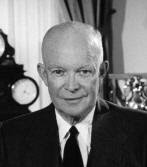 The presidential election that has been underway for over a year, and will continue for nearly another year, has raised many important issues and generated needed discussion about problems confronting our country. However, it has also made clear to many Americans that our system of choosing party nominees and electing Presidents is itself a problem that needs fixing.
The presidential election that has been underway for over a year, and will continue for nearly another year, has raised many important issues and generated needed discussion about problems confronting our country. However, it has also made clear to many Americans that our system of choosing party nominees and electing Presidents is itself a problem that needs fixing.
Our presidential elections have become far too long, too expensive, too divisive, and they divert attention, time and money from problems on which our political leaders, and all Americans, should focus and work together. They have also become the near-exclusive domain for the wealthiest or most prominent Americans with ambitions to hold the highest office in the land.
Within the lifetime of many adults today, candidates for President did not even announce their candidacies until the spring of the presidential election year. We used to have a primary system that started out slowly, with primaries in small states like New Hampshire, West Virginia and South Carolina, where good, unknown political leaders without enormous amounts of cash, could hire a bus, travel from town to town, and become known.
This sorting-out process in the smaller states allowed merit to be recognized and little-known candidates of merit to become known, thus broadening the field beyond the very wealthy and the more prominent leaders from the largest states. The primary season, having begun in March in small states, culminated in June in large states like New York and California.
Unfortunately, this sensible system has now been destroyed by large states competing against smaller ones to be among the first to hold primaries. Instead of a slow, testing process that moved from state to state, “super primaries” requiring hundreds of millions of dollars are now held in January and February of the presidential election year.
But today many recognize that the party nominees will be determined within the one month gap between “Iowa caucus day” on January 3rd and “super primary day” on February 5th when voters in Alabama, Alaska, Arizona, Arkansas, California, Colorado, Connecticut, Delaware, Georgia, Idaho, Illinois, Kansas, Massachusetts, Minnesota, Missouri, New Jersey, New Mexico, New York, North Dakota, Oklahoma, Tennessee and Utah will go to the polls to choose their party’s nominee.
With one-half of every four year election cycle being consumed as it is with highly partisan, national political activity there is an enormous spill-over effect on the Congress, with the parties and their leaders framing issues for the sake of partisan advantage instead of focusing on the best interests of the nation as a whole. This situation has produced a demise of statesmanship.
While most Americans probably would not want to see national elections carried out with strict spending limits within a six week period, as they are in Great Britain, our current system needs to be fixed, and most of our political leaders know it. Even while the current system is enriching political consultants, advertising firms, and the broadcast media, it is creating revulsion, cynicism, or apathy among the general public. I am reminded of a television personality who said, “I never vote; it only encourages them!”
Once our 2008 presidential election is finally over, our next President, senior leaders in Congress, and party leaders should promptly convene a bipartisan commission to advise political parties and office holders on how to restore a sane political process that ensures a level playing field, giving preference to character over cash and policies over partisan gamesmanship. 
In these perilous times, there are too many threats facing our nation for us to spend half our time fighting partisan battles that only divide and weaken our nation in the eyes of the world. There may be at least two sides to every issue, but in confronting Islamic jihad and the terrorism that seeks to destroy us, Americans cannot afford to be less than one nation, under God.
Friday, December 14, 2007
THE PRIMARY PROBLEM WITH PRESIDENTIAL PREFERENCES
Subscribe to:
Post Comments (Atom)



4 comments:
nice thoughts I must say
At this rate, there will be a primary right after the mid-term elections in 2010. Hopefully this problem will be fixed. A long campaign does more harm than good, we are starting to see that now with canidates from both sides of the field.
Amen brother. This process is now two years long, with ten months between the beginning of the primaries and the general election.
Politics has a place, but not THIS long.
You slam dunked it.
Post a Comment